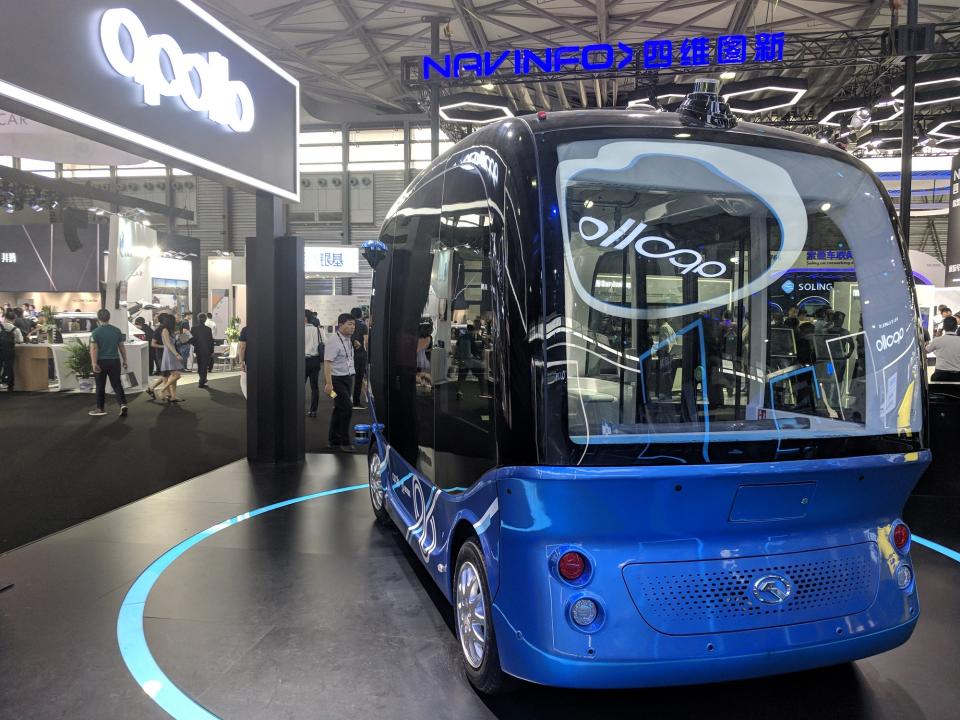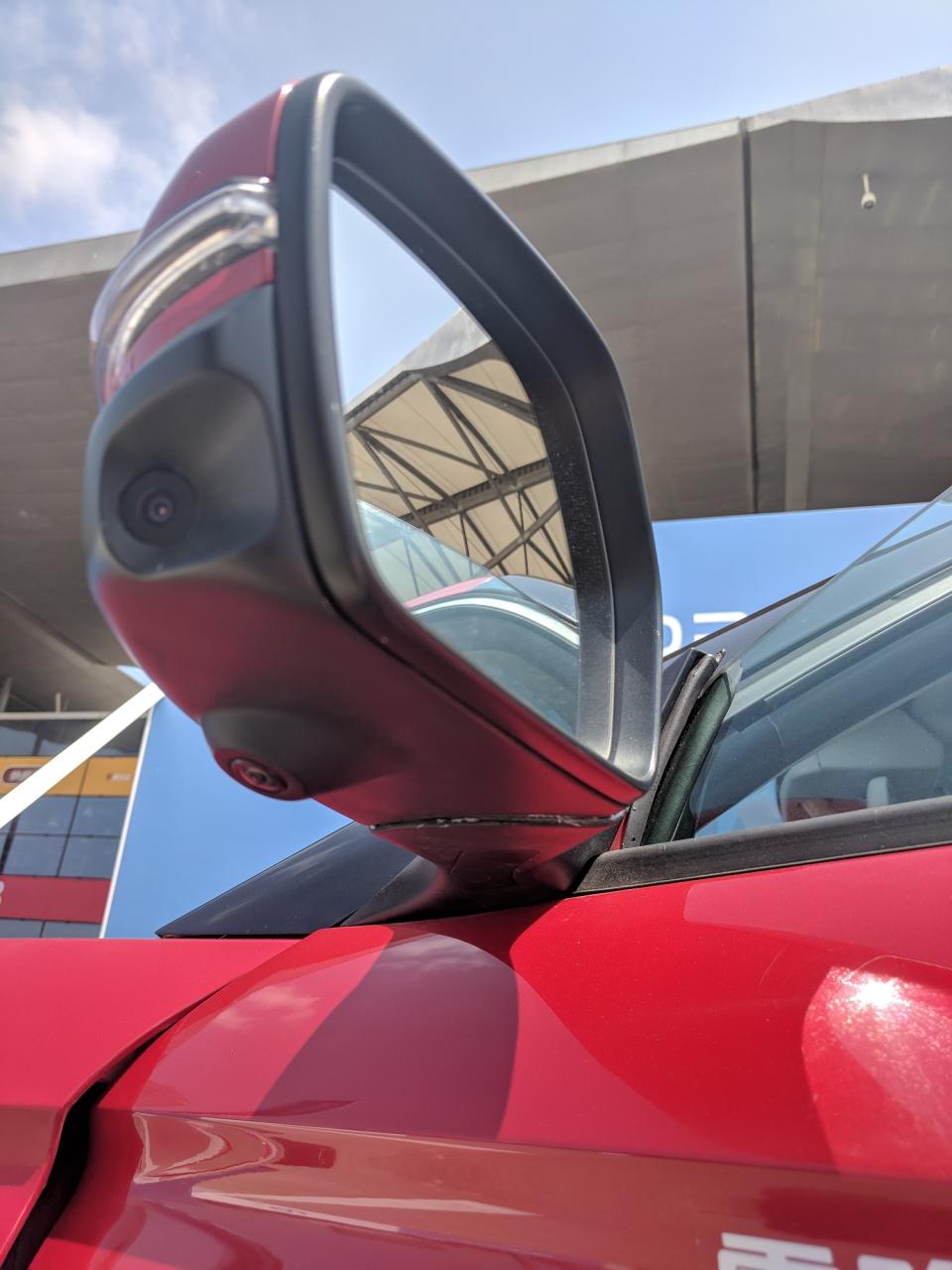How self-driving cars will take to China’s roads

SHANGHAI—The world’s most populous country wouldn’t mind having fewer people behind the wheel on its roads. And domestic tech firms and car makers look increasingly ready to make that happen.
The image of self-driving cars may have taken some dents in the U.S. after one of Uber’s test vehicles killed a pedestrian in Arizona, not to mention the few incidents when Tesla’s (TSLA) Autopilot software failed to save drivers from their own inattention. But in China, aggressive efforts by companies, highlighted at the CES Asia trade show here, are benefiting from a push by the government to boost this sector of the economy.
That evidence on display at this convention—hosted by the Consumer Electronics Association, the Arlington, Va., trade group that produces the far larger CES gathering every January in Las Vegas—suggests the road for autonomous vehicles in China may be about to open up, along with possible exports of autonomous-vehicle technology and components.
Less clear: Whether this will also result in self-driving Chinese vehicles showing up on American roads in anything like the numbers of people-driven Japanese or Korean cars.
Climbing the ladder of automation
Just as in the U.S., car makers here are pursuing different levels of automation. The entry-level sort was on display on a short test track outside the Shanghai New International Expo Center here, where the Chinese firm Leap Motor took journalists for quick rides in a prototype of its S01 sports car.
The battery-electric S01—Leap Motor says it will run 360 kilometers, or about 224 miles, on a charge—will ship with software to keep in its lane and at a proper separation from other cars while on the road, then parallel-park itself automatically. In that short ride, it did just that, employing ultrasonic sensors and seven cameras to detect its surroundings.

Many high-end, American-market models offer the same features, but Leap Motor plans to sell the S01 for 200,000 yuan, about $31,000, starting in the second quarter of next year. And aggressive government subsidies for electric-vehicle purchases should lower that price substantially.
China is already a welcoming market for this entry-level automation, with an installation rate “way more than that of the rest of the world,” said Frank Wang, vice president of advanced safety and user experience for the Asia-Pacific region at the auto-components vendor Aptiv, during a panel. Speaking in Mandarin, he cited that as evidence of the market’s openness to full automation.
Byton’s big bet
A more capable vision of autonomous driving made its debut here Tuesday night, when the startup firm Byton followed its January unveiling of an electric SUV at CES in Las Vegas by showing off an electric sedan that will also be able to drive itself.
This K-Byte vehicle looked strikingly more stylish than most self-driving prototypes, with LIDAR sensors to detect pedestrians tucked into a streamlined housing on the roof. Two others could be stowed behind hatches on the sides of the car.

The dashboard is dominated by a screen that spans the width of the car, and which can double as an in-seat cinema for everybody—including the driver when the car is in autonomous mode.
Byton aims to have the K-Byte capable of “Level 4” autonomy—meaning it needs no driver intervention on any road—by 2020 and ship it in China that year for 300,000 yuan, or $45,000. It’s not committing to U.S. availability yet, although CEO Carsten Breitfeld said in a conversation afterwards that 2021 is a possibility.
That former BMW executive also had good things to say about China’s ability to make its pledges of support for self-driving cars happen. “It is decided and implemented; it moves very fast,” he said. “In Germany, we have a different system: We discuss for 10 years, and then we do 10 percent of what we originally intended.”
Baidu’s moon shot
One of the weirder things about China’s tech economy is having Google (GOOG, GOOGL) as a non-factor, thanks to its unwillingness to submit to Beijing’s censorship. So instead of having Google’s Waymo unit conducting self-driving-car tests as it is in the States, domestic equivalents are doing the same.
The software conglomerate Baidu, essentially the Google of China, is one of them, and it’s pushing an ambitious program to build an open-source autonomous-vehicle platform called Apollo. It’s signed up U.S. companies such as Ford (F) and Microsoft (MSFT) as partners, and it’s secured government permission to test the results on Chinese roads in advance of such rivals as Tencent Holdings.
Baidu had two early results on display at its CES Asia exhibit: a 14-passenger electric minibus, and a compact no-passenger delivery vehicle built to run purchases to homes that looked like a baby Zamboni.
Baidu has based much of this development in California, as has Byton. But that doesn’t mean either firm can get past the highest wall for Chinese automakers: selling into the States.
In the short term, the Trump administration’s decision to slap a 25% tariff on $50 billion worth of Chinese goods won’t help. Nor will China’s announced plans to retaliate.
But there’s also a longer-term risk: One American investor with a few decades of doing business in China suggested that heavy-handed government backing may ultimately prove more of a hindrance, much as it has in Beijing’s so-far-unsuccessful efforts to get into the passenger-airplane business.
Warned Robert Theleen, CEO of the Shanghai-based investment firm ChinaVest: “Industrial policy only gets you so far,”
(Disclosure: I helped emcee the Last Gadget Standing competition here, and CTA covered most of my travel expenses.)
More from Rob:
Why the death of net-neutrality rules will be a big campaign issue
Your crypto exchange may be less secure than your email account
Email Rob at [email protected]; follow him on Twitter at @robpegoraro.
